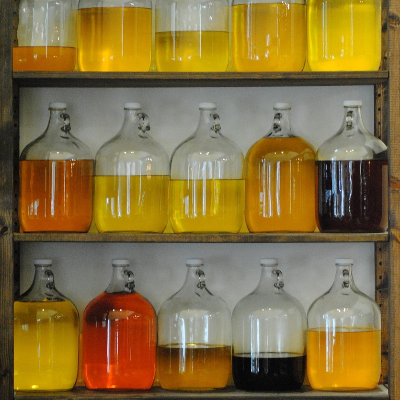Menu
-
-
F.A.Q
- How to identify genuine agarwood chip, natural or cultivated
- How to identify oil injection / absorption fake agarwood beads
- How to know if there are more than one oil in your oil
- How to make your wood bracelet or mala darker
- How to tell if an Agarwood bead sinks WITHOUT sinking it under water?
- How does back flow incense work and how do you burn it?
- Where to start if you don't know what agarwood is ?
- Why are you losing money if you buy seeds and plants?
- Which agarwood incense should I choose?
- Frequently Asked Questions
- Agarwood Related Articles
- Shipping
-
SHOP - Agarwood
-
SHOP - Other Fragrant Wood
-
SHOP - Incense Holder and Burner
-
- FREE Oud Oil guide
- Testimonials
- "Why did you buy this?"
- Contact us
- About Us
- +61430284329
- Login
-
English


Why agarwood chips smell great when heated - Agarotetrol-
Have you tried to smell agarwood chips at room temperature? Typical answer per below:
- "nothing special to me."
- "very plain."
- "pleasant but the weak woody smell "
If you were blindfolded, could you tell the differences between these 2? The one on the left is not so resinous wood, and on the right is a decent piece of agarwood chip

Some of you might say yes, so congratulation you had a good nose. However, it is not easy to identify these two without seeing them.
How about submerged these two chips underwater for 2 minutes and try blindfolded again just using your nose? Although we have not conducted this experiment, the number of people who could recognise the more resinous wood chip would be more than the first case (try to tell the difference between 2 without seeing the chips)
How about heating these chips? Could you identify the difference by experiencing the distinctive scent? One smell like campfire

The other, needless to say, earning its name as the "Wood Of God."

So, what makes the difference between these 2?
Takamatsu (2018), mentioned that Agarotetrol is a compound extracted from agarwood using water. It has been found to produce fragrant substances, particularly benzyl acetone, when heated. Although agarotetrol and other chromone derivatives do not have their own scent, heating them transforms them into volatile compounds that contribute to the characteristic aroma of agarwood
So heating will "evoke" the agarwood scent. Agarotetrol in agarwood through heat will emit low molecular weight aromatic compounds (LACs) such as Benzyl Acetone which has an odour profile of floral, herbal balsamic; these notes are easily detected from heating agarwood chips.

These oud wood chips when pulverised and soaked in water for several days before distillation to increase the LACS.

This process is one of the tricky parts because
- If pulverised woods were soaked for too long, the microorganism could appear as this is an ideal environment for fungus and bacteria. Some distillers do not have these wood under a close monitor, and flies may lay egg and maggot will grow. Imagine your oud oil contains some extra protein, you would not mind it, would you :)?
- If the pulverised woods were soaked for too short, the yield is low; the smell may not be as good, the final product would become more expensive.
Imagine, in a large batch when the distiller need to soak tons of wood for a more significant project, for example, 10kg of oud oil, for a particular perfume, how one would handle that to ensure the consistency in quality and quantity?
1 Response
Leave a comment
Comments will be approved before showing up.



Michael milic
July 07, 2019
Hi team
Would you guys have enough unaffected oud wood bigger enough to make a small 5litre barrel and what would that cost me.
I would really appreciate a response
Kind regards
Michael Milic